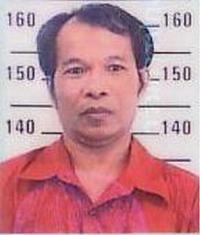How does your client pay you Japanese translations? Thread poster: Sergio Juárez García
|
|---|
I have recently begun my activity as a freelancer and am receiving now some offers to translate patents from Japanese into Spanish. What troubles me is that I do not know how to make the wordcount to invoice my client. I have read many threads in this forum and users suggests many methods. Please help me to solve these questions:
1) Should I count Japanese characters as words (1 character = 1 word)?
2) Should I apply instead that rule that has already been mentioned in... See more I have recently begun my activity as a freelancer and am receiving now some offers to translate patents from Japanese into Spanish. What troubles me is that I do not know how to make the wordcount to invoice my client. I have read many threads in this forum and users suggests many methods. Please help me to solve these questions:
1) Should I count Japanese characters as words (1 character = 1 word)?
2) Should I apply instead that rule that has already been mentioned in other threads, dividing the estimated number of characters between say 2, as 2 Japanese characters are one translated Spanish word? By the way, English translators have suggested that amount is 2.5 characters = 1 translated English word.
And I indicated 'estimated' because they have given me no wordcount and I must calculate an estimate of characters in every page of the PDF. Should I charge them something for counting words manually, say a flat rate per hour? Has any of you ever had to wordcount manually?
3) Last alternative, should I invoice for target word?
This would involve translating first and doing an automatic wordcount with Trados of the target document in Spanish. This method makes me a bit uncomfortable as we cannot agree to a established budget beforehand and I don't want to argue later on price matters...
Thanks / ありがとうございます!
[Edited at 2009-02-05 19:50 GMT]
[Edited at 2009-02-05 19:52 GMT] ▲ Collapse
| | | | conejo 
United States
Local time: 12:49
Japanese to English
+ ...
Buenos días... Here is some information that I hope will help.
Generally, for counting words, if there are 2000 Japanese characters in the source document, it will end up being around 1000 English words, varying a little up or down. I don't know the ratio between Japanese and Spanish.
You generally can't charge your clients for having to count words manually. (Yeah I know, this sucks.) Typically what I do is, I find certain 'representative' pages that look like other p... See more Buenos días... Here is some information that I hope will help.
Generally, for counting words, if there are 2000 Japanese characters in the source document, it will end up being around 1000 English words, varying a little up or down. I don't know the ratio between Japanese and Spanish.
You generally can't charge your clients for having to count words manually. (Yeah I know, this sucks.) Typically what I do is, I find certain 'representative' pages that look like other pages, and count them. Example:
Page 1: A full page of text only.
Page 7: A half page of text with some captions and graphics.
Page 9: A page with a table on it.
So I would count the Japanese characters on these 3 pages and then count other pages that look like them, as the same amount. And others, example, half pages of text, you would just count them as [number of J. chars in Page 1] X 0.5. So yes, you need to use some method to make the counting go easier on those PDFs, so you don't spend all your time doing that.
If the source document is in a format that cannot be counted easily (aka, PDF), I always invoice in target words. Target words are easily countable and that way your bill will be accurate. I have had a few clients, however, who insist on using source characters, even in scanned PDFs, and in that case, I just give them my estimated source characters, since that's all they will take. Some clients will tell you they want you to invoice in source Japanese characters, and others will say please invoice in English target words, and others will not give you any preference as long as your price is within an acceptable range. So, if you have a PDF document that you have to count characters in manually, charge in target English words.
And, if there's any formatting involved, if it's a lot of formatting I typically include some kind of formatting charge (by the hour), but you'll typically have to negotiate this beforehand.
Que tenga buen día... Buena suerte. ▲ Collapse
| | | | | Please give me some feedback on this ;) | Feb 5, 2009 |
I have recovered by chance a translation job of some patents I worked in some years ago. Then I was also given scanned Japanese patents in PDF format and I had to translate them as translators worked when they had no CAT tools, the old way.
For that translation my client and I agreed to a flat rate for every source page (a custom common in the literary and publishing business). Now I have been working some years in the translation business as an inhouse translator and I know I will ... See more I have recovered by chance a translation job of some patents I worked in some years ago. Then I was also given scanned Japanese patents in PDF format and I had to translate them as translators worked when they had no CAT tools, the old way.
For that translation my client and I agreed to a flat rate for every source page (a custom common in the literary and publishing business). Now I have been working some years in the translation business as an inhouse translator and I know I will not charge again those thin rates I charged once, I will charge them a fair rate per word in the source text.
As I have said before, I happened to kept both the printed patents and their translations. I decided to perform a little experiment with them. I chose a little extract and a bigger one, both in their source language and translation. Then I counted manually the Japanese characters in the source text and the words in the translated Spanish version.
Then I thought it would be really interesting to share the results I obtained with you all:
First extract
---------------
Japanese text: 176 words
Spanish translation: 350 words
Second extract
-------------------
Japanese text: 495 words
Spanish text: 249 words
Rate
------
2 Japanese characters = 1 translated word (Spanish - Field= Patents)
How do you find these results? I think I will propose to my client counting the characters in the PDF file and dividing that number between two. I need that the agency and I agree to a budget before accepting that job, I would like to avoid arguing with them later for money matters.
Has any client paid you per translated word? Is this method satisfactory and safe for you?
[Edited at 2009-02-05 20:52 GMT] ▲ Collapse
| | | | | CAT for Japanese | Feb 6, 2009 |
I frequently see Japanese word counts by number of characters (not words) in Trados, SDLX, Fine count and other CAT tools.
I quote price by source JP char.
Japanese is a double-byte language. Target language (e.g. English) with mixing JP chars is a confusing in word count tools. This is why I insist to count by number of JP chars.
Soonthon L.
| | |
|
|
|
| I have still doubts on how to do it... | Feb 8, 2009 |
Soonthon LUPKITARO(Ph.D.) wrote:
I frequently see Japanese word counts by number of characters (not words) in Trados, SDLX, Fine count and other CAT tools.
I quote price by source JP char.
Japanese is a double-byte language. Target language (e.g. English) with mixing JP chars is a confusing in word count tools. This is why I insist to count by number of JP chars.
Soonthon L.
Thanks, Soonthon.
I have tried FineCount. It works fine if you have to count characters, but it is not useful for counting words. It counted ~500 characters and only ~50 words in a sample text I have to translate. That is a wrong count of words and I am still doubtful whether I should budget per Japanese character.
Some users in other threads in this Japanese forum say they find it more appropiate to count Japanese characters and divide this number between a number, an estimate of number of translated words. It ranges from 1.5% to 3%, depending on the field and target language. This is how we should do it if we consider Japanese words as units of meaning...
I would like more users of this forums to explain how they do it or how their agencies work with them.
Dohzo, chikara o kashite!!
[Edited at 2009-02-08 00:28 GMT]
| | | | | source characters | Mar 20, 2009 |
All the Japanese agencies and clients I work with use the charge per source character system, except one who insists to be charged in target words.
All you need to do is get Word or Acrobat to count the characters and make a simple multiplication...
Manga translation is different though. There are so few words you'd be better off charging per page.
| | | | To report site rules violations or get help, contact a site moderator: You can also contact site staff by submitting a support request » How does your client pay you Japanese translations? | Anycount & Translation Office 3000 | Translation Office 3000
Translation Office 3000 is an advanced accounting tool for freelance translators and small agencies. TO3000 easily and seamlessly integrates with the business life of professional freelance translators.
More info » |
| | TM-Town | Manage your TMs and Terms ... and boost your translation business
Are you ready for something fresh in the industry? TM-Town is a unique new site for you -- the freelance translator -- to store, manage and share translation memories (TMs) and glossaries...and potentially meet new clients on the basis of your prior work.
More info » |
|
| | | | X Sign in to your ProZ.com account... | | | | | |







